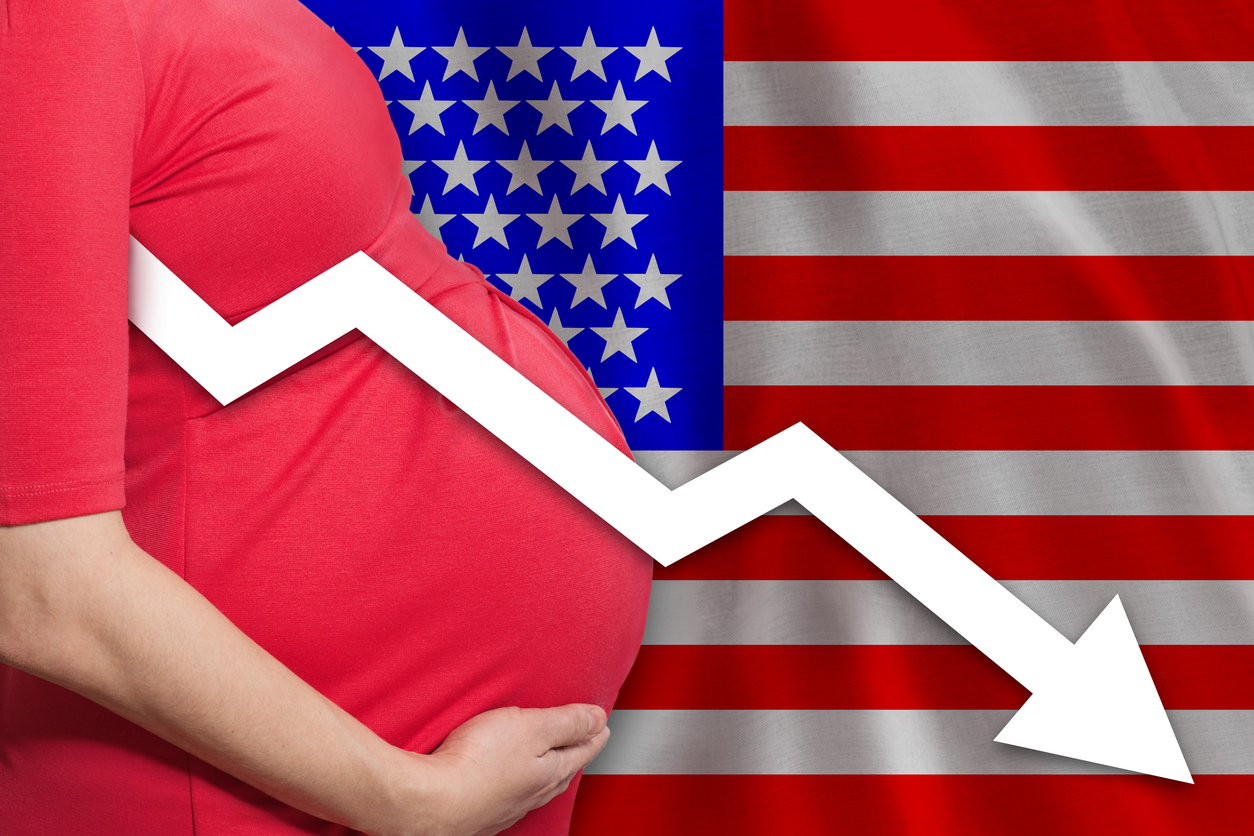Women have narrowed the ‘gender pay gap’ by causing a fertility crisis

Women have successfully narrowed the “gender pay gap” by having fewer babies and contributing to America’s fertility crisis, according to a new report.
For decades, feminists have pointed to lower earnings among women as evidence of sex-based discrimination, often ignoring studies showing that making different lifestyle choices is what causes unequal pay outcomes. Men typically work harder and longer and choose higher-paying jobs. Women have historically placed less emphasis on their careers and devoted themselves to other pursuits, like motherhood. Even in areas like science, technology, engineering, and mathematics (STEM), where women are disproportionately privileged, men often earn more because they produce more than their female counterparts.
Researchers from Harvard University and the University of Michigan have found that a decline in motherhood over the last forty years has coincided with a narrowing of the gender pay gap. In the 1980s, when the birth rate was 2.4 children per woman, women were earning 65% as much as men. But the birth rate fell sharply since then to about 1.8 children in 2018. Today, when the US birth rate stands at 1.6, women are earning 85% as much as men, as some continue to choose different career and lifestyle paths that pay less.
“[A]s people were having fewer kids, the gender pay gap got smaller,” the researchers wrote in an article for The Conversation.
‘Kids are expensive and sticky’
The US fertility rate has been plummeting for decades. In the early 1960s, it was 3.5. It began to decline with the “women’s liberation movement” until it reached 1.7 in 1976. The rate briefly rebounded to 2.1 by 2007, but has since continued to drop. The current fertility rate of 1.6 is far below the replacement rate of 2.1, which is the number a generation needs to replace itself.
The Trump administration is taking measures to address the fertility crisis. In February, President Trump signed an executive order reducing the cost of IVF. The administration has also supported the idea of offering “baby bonuses,” financial incentives for having children.
The Left acknowledges that women in careers are driving the fertility crisis, but celebrates it as “female empowerment.” Business Insider, for example, says it is “a sign of economic progress, signaling a rise in individualism and women's autonomy.”
"I couldn't imagine juggling work and children. I wouldn't be able to care for my two dogs without my husband,” 40-year-old career woman Jennifer Mathieu told Business Insider, adding: "I have zero regrets, love my life, and think at least three to four times a week about how thankful I am that I do not have children."
"We both work hard at our careers and honestly didn't feel like children fit into the life and goals we wanted," said Heather Watson, another female professional. "It always felt like it would be unfair to kids to try to fit them into our lives."
“Kids are expensive and sticky,” said another.
Fertility crisis in the West
This decline is part of a general fertility crisis in the West, with nearly all countries outside of Africa suffering from falling fertility rates. The UK’s fertility rate last year was just 1.44, down from 2.47 in 1946, causing British officials to plead with the public to reproduce. The UN recently issued a warning about plunging birth rates after its poll showed disappointing results. The United Nations Population Fund (UNFPA) polled 14,000 people across 14 countries about their fertility rates: South Korea, Thailand, Italy, Hungary, Germany, Sweden, Brazil, Mexico, the US, India, Indonesia, Morocco, South Africa, and Nigeria. Twenty percent of respondents said they don’t yet have or don’t expect to have their desired number of children.
Researchers warn that by 2050, two-thirds of countries will lack the fertility rates to sustain their populations. That number will increase to 97% by 2100, which is when sub-Saharan Africa is expected to account for 50% of global births. Currently, fertility rates are highest in Africa, where Chad boasts the highest in the world.


.jpg)

